detail profile ivan kondov
Peran Yang Di Mainkan Ivan Kondov
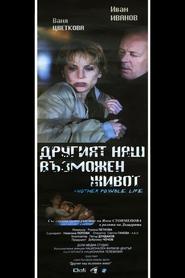 A man and a woman meet...
A man and a woman meet...Another Possible Life 2004
A man and a woman meet again after many years - on the territory and circumstances of post-socialist Bulgaria. A university graduate and poetess, forced to adapt herself to the new social environment, she survives in her own country as a tram driver. Having arrived for his father's funeral after years of travels abroad, he catches a glimpse of his old flame accidentally in a tram. Could they bring back their emotional time, the time of their lives? Could they try to resurrect whatever bound them together in their youth?
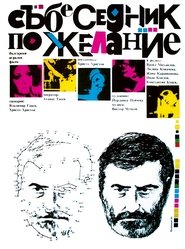 A famous stage and screen actor...
A famous stage and screen actor...Question of Time 1984
A famous stage and screen actor has been invited for an interview on 'Question Time', a popular Bulgarian TV program. He has fought heroically in the anti-fascist resistance and at present his talent is bringing him artistic satisfaction and fame. His personal life also seems to be trouble-free. After the end of Sunday program, however, he learns that he is terminally ill with leukemia. The prospect of death destroys his all too comfortable illusions and turns his ideas of life upside down. His love for a provincial actress, from whom he has broken away in the past, is rekindled. Now he needs a closer relationship with his only son, who owes many of his complexes to the egotism of his father. The deceptive harmony between genuine and pseudo art in his career gets disturbed. The protagonist devotes the last few month of his life to the staging of a play which has been rejected in the past, and which he has not had the courage to defend.
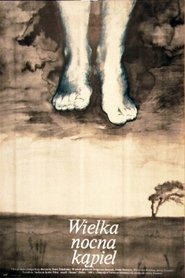 Friends of different generations practicing different...
Friends of different generations practicing different...The Big Night Bathe 1980
Friends of different generations, practicing different professions, spend together their summer holidays at the seaside every year. It is sunny; they look carefree and happy. They know each other very well, they are used to each other. To such an extent, that bore becomes inevitable. It is boredom that incites them to play a dangerous game. The end is dramatic: a young boy gets killed. It is the moment to draw the bottom line. The question is: Isn't the death of the spirit worse than of the body?
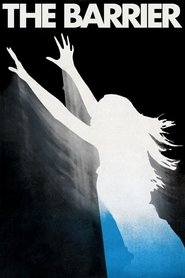 In this picture the barrier epitomizes...
In this picture the barrier epitomizes...The Barrier 1979
In this picture, the barrier epitomizes the line between reality and dreams, the pattern of harmony and happiness. The delicate, pretty, sensitive Dorotea and the sedate middle-aged composer Antoni meet by chance. He gives her shelter in his house. Famous composer falls under the spell of young Dorothea: A pretty, thin-skinned, though quite an eccentric girl.
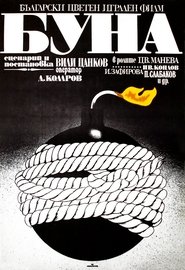 1920s A young girl teacher comes...
1920s A young girl teacher comes...Buna 1975
1920's. A young girl - teacher comes from the city to a small, poor village to teach the children. There is a medic in the village. Without being a doctor, he has taken up the noble deed to help people. The "miracle" of the village is two twins - brother and sister, Lefter and Leftera. Both of them resell village land. Everyone is feeling the pressure from the twins. This causes the eruption of a violent and bloody riot.
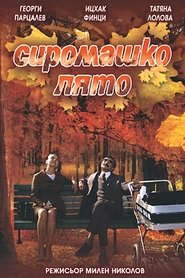 The day that the financial clerk...
The day that the financial clerk...Indian Summer 1973
The day that the financial clerk Metodi Rashkov is getting retired comes. He is a shy and quiet man and he accepts all tasks given to him by his son and daughter in law without argument. With time, he becomes a housekeeper; he shops, cooks and looks after his grandson. In order to save his face in front of his friends he lies to them and falls in a number of uncomfortable situations. The "Expolsion" becomes imminent. The reason is insignificant but with great consequences. Rashkov leaves his home. Soon the freedom which he wanted becomes boring for him. The abandoned family begins to miss the grandfather. At the end everyone sees their mistakes and is ready to fix them. The birth of a second grandson is the event which brings everyone under the same roof again.
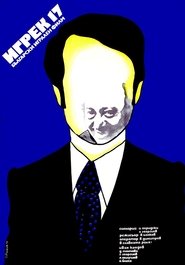 The Bulgarian intelligence service has information...
The Bulgarian intelligence service has information...Y-17 1973
The Bulgarian intelligence service has information that the top agent Peron is to arrive in Bulgaria. The higher official of the counter intelligence Ivan with an alias Y 17 is to investigate. Peron has to meet his local contact, the former ship captain Rudnev. The young Mina is accommodated in Rudnev's home. Rudnev figures that she is counterintelligence and agrees to cooperate with the task force. Soon after, Peron meets Mina and an eccentric engineer, fired from the job. The young man is the deep undercover agent Y 117. Peron tests the man. He tells him that Mina is an agent of the Bulgarian counterintelligence, and gives him a gun to kill her. Y 117 shoots Mina but the bullet was a blank. After that Y 117 should leave the country with Peron.
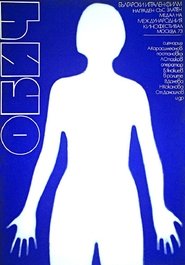 Maria is having great difficulty getting...
Maria is having great difficulty getting...Love 1972
Maria is having great difficulty getting on with her parents because of their blind, consumerist approach to life. Traumatized by continuous family dramas, having experienced the disappointments of firs love, Maria decides to go up the mountain to a holiday home. There she meets a conceited architect, a shy teacher, a jurist, and a timid journalist (all of them representatives of the intelligentsia) who are domineered by the manager of the holiday home and his 'problems'. Maria's resignation changes into a rebellion against impersonal submission and sheep-like compliance with those who hold power.
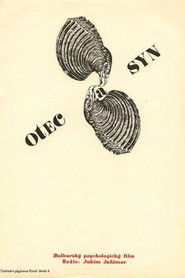 Evtim Manasiev is an outstanding engineer...
Evtim Manasiev is an outstanding engineer...Restless home 1965
Evtim Manasiev is an outstanding engineer. At the office, he has made a name for himself as a "whole-hogger boss". At home, his motto is: "Love me, love my dog". His children rebel against his acting at variance with his own principles. Tired and exasperated, Manasiev realizes that he has been wrong in some of his actions. On a holiday, he runs into Mihaylova, a subordinate of his whom he has recently fired undeservedly. The meeting urges him to reconsider and to review painfully all his previous life and principles. —Georgi Djulgerov
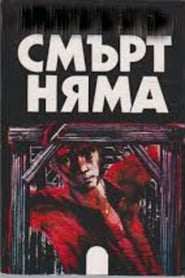 The new supervisor Vasil arrives at...
The new supervisor Vasil arrives at...There Is No Death 1963
The new supervisor Vasil arrives at the construction site of a dam. Vasil has problems with his men, who mistrust him and reluctantly submit to his perfectionism. He becomes involved with the refreshment bar attendant Lilyana. Vasil, who always wanted children, cannot abandon his childless wife and breaks with Lilyana. When four workers are buried in a tunnel landslide, Vasil makes his way to them and manages to drag them all out, except for Zlatan, a spiteful egocentric, whose legs are caught under a fallen prop. Zlatan begs Vasil to save him, even if it means cutting of his legs. To release the miner's legs Vasil cuts the prop, which is also supporting the roof of the tunnel. Zlatan is rescued. However, Vasil is killed. Since then, the workers say his steps can be heard bellow the dam wall.
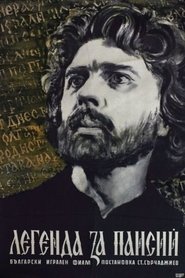 The beginning of the 18th century...
The beginning of the 18th century...Legend of Paisiy 1963
The beginning of the 18th century. Bulgaria is under the Ottoman bondage. The monks of the Monastery of Hilendar on Mount Athos warn the young monk Paisiy to beware of the "pestilent chapel". On his deathbed, the abbot conjures Paisiy to search for Slavonic books. The young monk goes from one monastery to another in search of ancient books. He breaks into the "pestilent chapel" and finds there stacks of old Bulgarian books telling of the wisdom of Bulgarians kings, and of the power and civilization of the Bulgarian Empire and its past glory. His fellow-monks try to burn the books but Paisiy manages to escape. His Slav-Bulgarian History circulates in handwritten copies through the captive country and the Bulgarians becomes truly aware of their national identity.
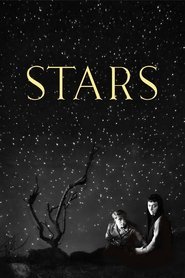 Stationed in a secluded Bulgarian village...
Stationed in a secluded Bulgarian village...Stars 1959
Stationed in a secluded Bulgarian village in 1943, Walter – a German Wehrmacht sergeant and artist – lives in almost idyllic distance from the war. Then a transit camp is set up for Jews arriving from Greece. When Ruth, one of the internees, asks Walter to help a pregnant woman, the two form an unlikely bond.
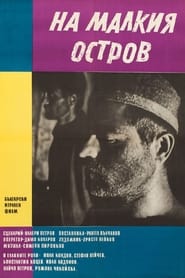 In the 1920s several dozen political...
In the 1920s several dozen political...On the Small Island 1958
In the 1920s several dozen political prisoners are exiled on a small island in the Black Sea awaiting sentencing. The old sea wolf and adventurer Kostadin (nicknamed Costa Rica) is planning an escape together with а carpenter named Zheko, an idealistic student and a doctor.
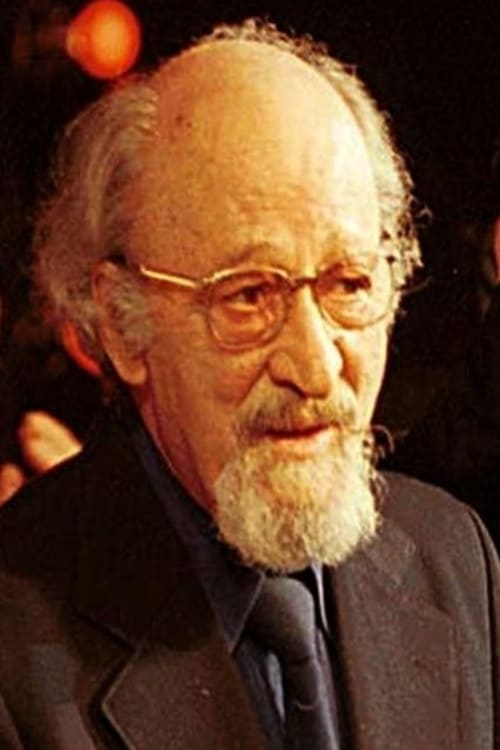
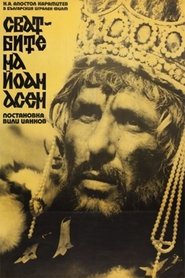 The film takes us back into...
The film takes us back into...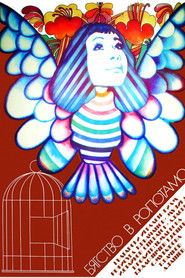 After a successful concert the famous...
After a successful concert the famous...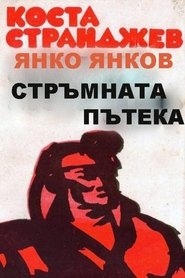
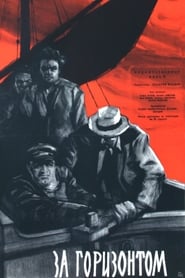 Partisans hijack a boat
Partisans hijack a boat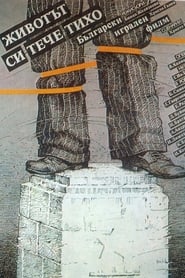 The fortunes of a group of...
The fortunes of a group of...